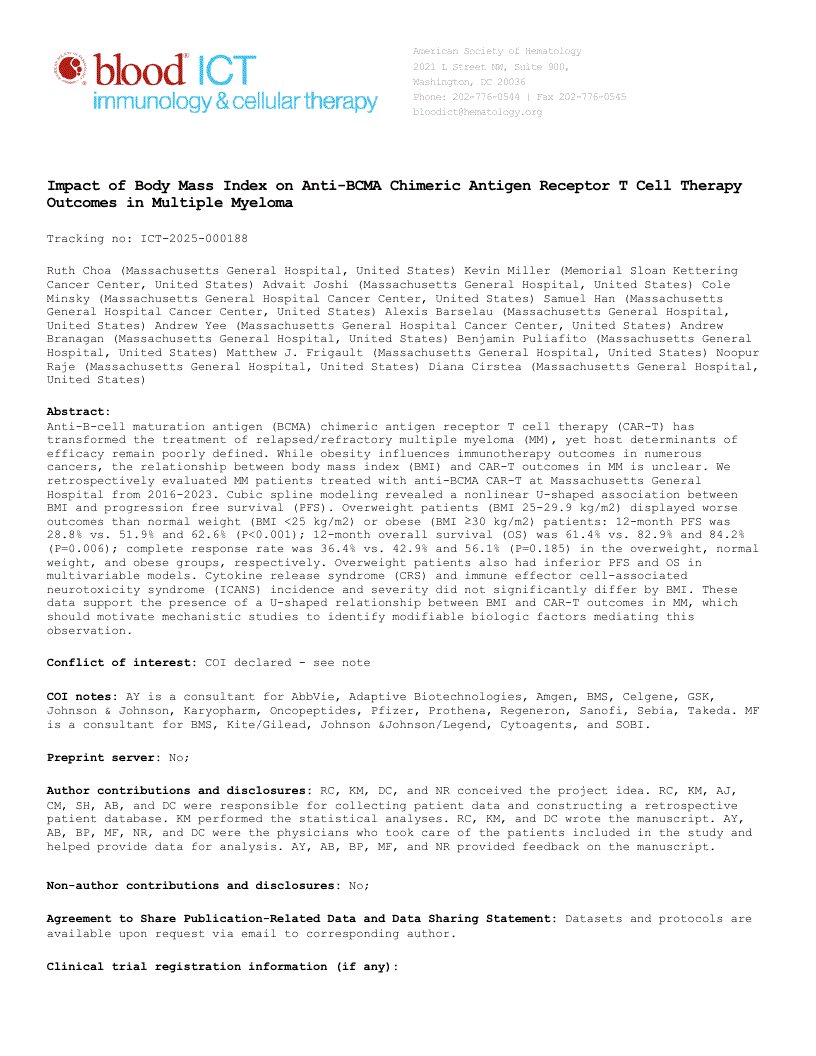KEY POINTS
Overweight patients with relapsed/refractory myeloma have worse outcomes with anti-BCMA CAR-T than normal weight or overweight patients.
ABSTRACT
Anti-B-cell maturation antigen (BCMA) chimeric antigen receptor T cell therapy (CAR-T) has transformed the treatment of relapsed/refractory multiple myeloma (MM), yet host determinants of efficacy remain poorly defined. While obesity influences immunotherapy outcomes in numerous cancers, the relationship between body mass index (BMI) and CAR-T outcomes in MM is unclear. We retrospectively evaluated MM patients treated with anti-BCMA CAR-T at Massachusetts General Hospital from 2016-2023. Cubic spline modeling revealed a nonlinear U-shaped association between BMI and progression free survival (PFS). Overweight patients (BMI 25-29.9 kg/m2) displayed worse outcomes than normal weight (BMI <25 kg/m2) or obese (BMI ≥30.0 kg/m2) patients: 12-month PFS was 28.8% vs. 51.9% and 62.6% (P<0.001); 12-month overall survival (OS) was 61.4% vs. 82.9% and 84.2% (P=0.006); complete response rate was 36.4% vs. 42.9% and 56.1% (P=0.185) in the overweight, normal weight, and obese groups, respectively. Overweight patients also had inferior PFS and OS in multivariable models. Cytokine release syndrome (CRS) and immune effector cell-associated neurotoxicity syndrome (ICANS) incidence and severity did not significantly differ by BMI. These data support the presence of a U-shaped relationship between BMI and CAR-T outcomes in MM, which should motivate mechanistic studies to identify modifiable biologic factors mediating this observation.
Author notes
Contributed Equally
DATA SHARING STATEMENT
The data from this study are available upon request to the corresponding author.

